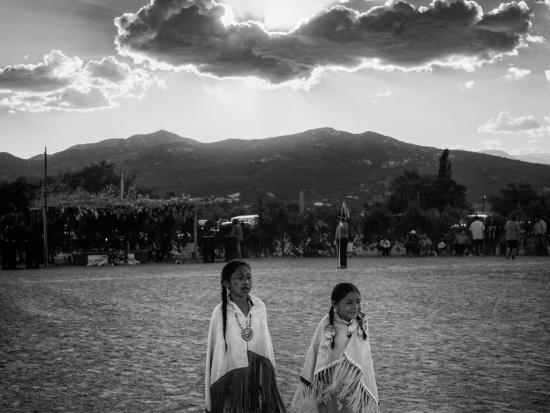
- Details
- By Elyse Wild
Secretary of the Interior Deb Haaland (Laguna Pueblo) announced that the National Park Service will be collaborating with Tribes on a new theme study, which will focus on the Indian Reorganization Period and help the understanding of an important chapter within American history.
Theme studies from the National Park Service aim to provide national historical context for specific topics in American history or prehistory, as well as evaluation guidance and a list of properties for study as possible future National Historic Landmarks. These studies educate the public about the nation’s heritage and preserve important and often under-told stories, such as the history associated with the Civil Rights and labor movements.
This theme study will build on the Federal Indian Boarding School Initiative and other efforts to ensure that Native American history is recognized as American history.
“Native American history is American history, and it should be told by Indigenous peoples. The stories we share inform not just our present but the future world we will pass on to the next generation of leaders. They help define us,” Haaland said in remarks at the 2023 White House Tribal Nations Summit.
 Make A Donation Here
Make A Donation Here
“I am grateful that the National Park Service will work closely on this study with Native communities to ensure that their stories, perspectives and Indigenous Knowledge are a key part of this work.”
The National Park Foundation is contributing to the launch of the study, which will be prepared with guidance and expertise from Tribal leaders, academics, and other experts in the field. Early work for the study will start in 2024 and the National Park Foundation will begin outreach to Tribes in the coming months.
“The Foundation is pleased to support this collaborative initiative between the National Park Service and Tribes across the country,” Will Shafroth, president and CEO of the National Park Foundation, said in a statement. “The study will contribute to a more complete understanding of our shared heritage, including the historical perspectives of Tribes central to this period in American history.”
More Stories Like This
Native News Weekly (August 25, 2024): D.C. BriefsUS Presidents in Their Own Words Concerning American Indians
I’m a Minneapolis Postal Worker. This Is What I Saw.
Next on Native Bidaské: Inside Dark Winds with the Cast of Season 4
'Sovereignty Predates the United States,' NCAI President Mark Macarro Tells Tribal Nations
Help us defend tribal sovereignty.
At Native News Online, our mission is rooted in telling the stories that strengthen sovereignty and uplift Indigenous voices — not just at year’s end, but every single day.
Because of your generosity last year, we were able to keep our reporters on the ground in tribal communities, at national gatherings and in the halls of Congress — covering the issues that matter most to Indian Country: sovereignty, culture, education, health and economic opportunity.
That support sustained us through a tough year in 2025. Now, as we look to the year ahead, we need your help right now to ensure warrior journalism remains strong — reporting that defends tribal sovereignty, amplifies Native truth, and holds power accountable.
 The stakes couldn't be higher. Your support keeps Native voices heard, Native stories told and Native sovereignty defended.
The stakes couldn't be higher. Your support keeps Native voices heard, Native stories told and Native sovereignty defended.
Stand with Warrior Journalism today.
Levi Rickert (Potawatomi), Editor & Publisher

